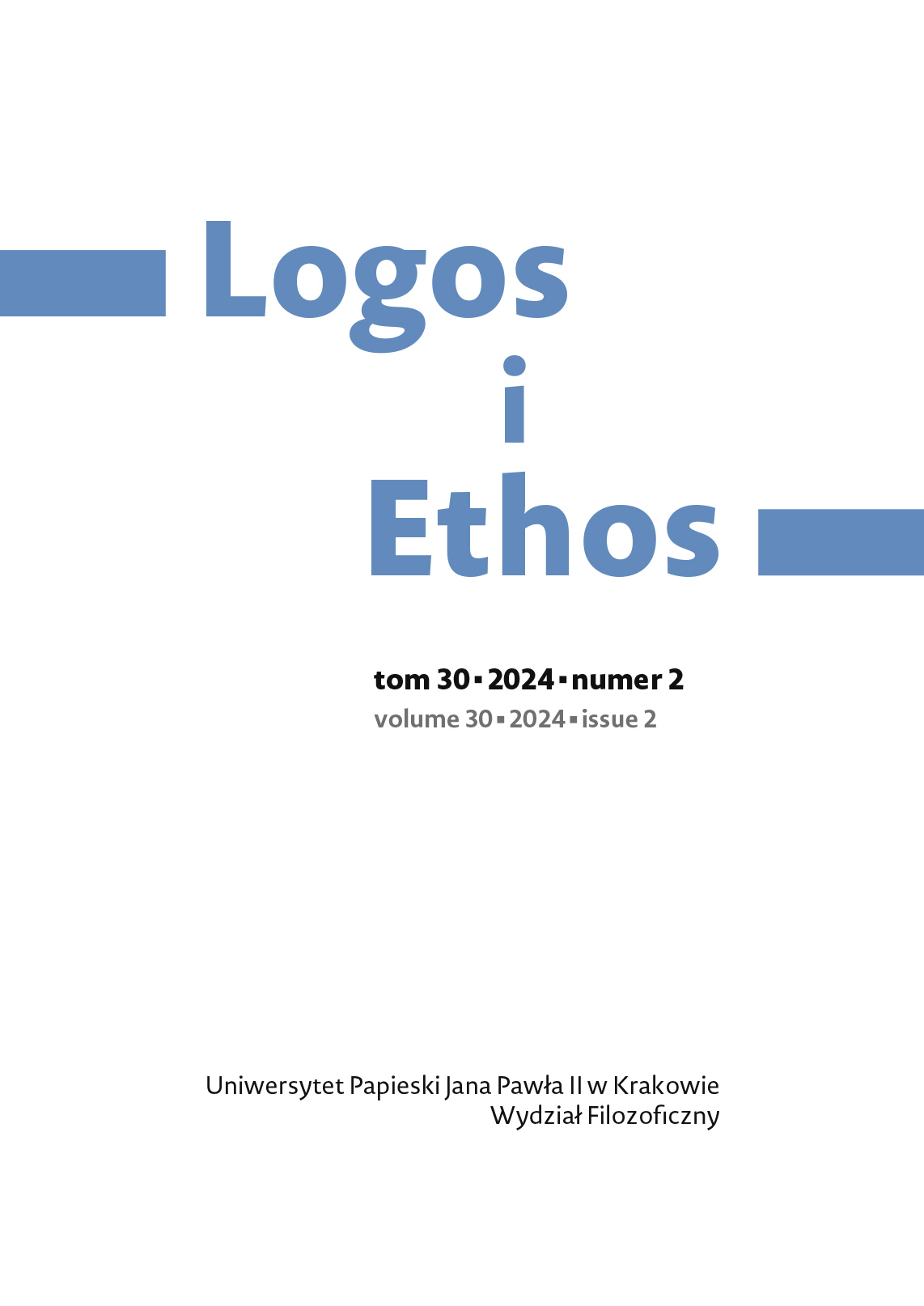Agon of interpretation. The role of struggle and competition in Hans-Georg Gadamer’s hermeneutics in relation to Friedrich Nietzsche’s “Homer’s Contest”
DOI:
https://doi.org/10.15633/lie.30204Keywords:
Hans-Georg Gadamer, Friedrich Nietzsche, philosophical hermeneutics, agon, rivalry, educationAbstract
The article discusses the role of struggle and rivalry (agon) in the philosophical hermeneutics of Hans-Georg Gadamer. The german philosopher identified the Greek ideal of education as one of the important sources of his concept. Analysing selected aspects of Plato’s pedagogy and the relationship between rhetoric and sophistry, he clearly acknowledges the value of struggle, provided that it is a self-improving struggle with oneself or a struggle for truth and goodness. He thus proposes alternative to Nietzsche’s model, offering a dialogical model of hermeneutics. Nietzsche sees rivalry as the main culture-forming factor of the ancient world. Ultimately, Gadamer, in his analysis of Hegel’s categories of domination and slavery, rejects struggle as the cause of a possible misinterpretation.
References
Acampora C. D., Contesting Nietzsche, Chicago 2013, https://doi.org/10.7208/chicago/9780226923918.001.0001.
Arystoteles, Retoryka. Retoryka dla Aleksandra. Poetyka, tłum. H. Podbielski, Warszawa 2008.
Biały F., Koncepcje demokracji agonistycznej, Poznań 2018.
Bloom H., Lęk przed wpływem. Teoria poezji, tłum. A. Bielik-Robson, M. Szuster, Kraków 2002.
Bloom H., Agon. Towards a theory of revisionism, New York–Oxford 1982.
Gacia T., Agonistyka jako topos w pismach Tertuliana, „Vox Patrum” 38 (2000), s. 415–426, https://doi.org/10.31743/vp.7266.
Gadamer H.-G., Apologia sztuki leczenia, tłum. A. Przyłębski, w: H.-G. Gadamer, O skrytości zdrowia, Poznań 2011, s. 47–60.
Gadamer H.-G., Doświadczenie cielesności a możliwość obiektywizacji, tłum. A. Przyłębski, w: H.-G. Gadamer, O skrytości zdrowia, Poznań 2011, s. 91–105.
Gadamer H.-G., Dramat Zaratustry, tłum. G. Sowinski, w: Nietzsche 1900–2000, red. A. Przybysławski, Kraków 1997, s. 118–135.
Gadamer H.-G., Hegels Dialektik. Sechs hermeneutische Studien, Tübingen 1980.
Gadamer H.-G., Idea dobra w dyskusji między Platonem i Arystotelesem, tłum. Z. Nerczuk, Kęty 2002.
Gadamer H.-G., Koło jako struktura rozumienia, tłum. G. Sowinski, w: Wokół rozumienia. Studia i szkice z hermeneutyki, red. G. Sowinski, Kraków 1993, s. 227–234.
Gadamer H.-G., Pochwała teorii, tłum. A. Mergler, w: H.-G. Gadamer, Teoria, etyka, edukacja. Eseje wybrane, Warszawa 2008, s. 20–38.
Gadamer H.-G., Prawda i metoda. Zarys hermeneutyki filozoficznej, tłum. B. Baran, Warszawa 2007.
Gadamer H.-G., Przyjaźń i poznanie siebie. O roli przyjaźni w greckiej etyce, tłum. A. Mergler, w: H.-G. Gadamer, Teoria, etyka, edukacja. Eseje wybrane, Warszawa 2008, s. 143–156.
Gadamer H.-G., Wiek filozofii. Rozmowy z Riccardem Dottorim, tłum. J. Wilk, Wrocław 2009.
Gadamer H.-G., Wychowanie jest wychowaniem siebie, tłum. P. Sosnowska, w: H.-G. Gadamer, Teoria, etyka, edukacja. Eseje wybrane, Warszawa 2008, s. 258–270.
Grondin J., Gadamer’s experience and theory of education. Learning that the other may be right, w: Education, dialogue and hermeneutics, ed. P. Fairfield, London 2011, s. 5–20.
Grondin J., Wprowadzenie do hermeneutyki filozoficznej, tłum. L. Łysień, Kraków 2007.
Hegel G. W. F., Fenomenologia ducha, tłum. Ś. F. Nowicki, Warszawa 2003.
Kotarbiński T., Erystyka jako poszczególny przypadek teorii walki, w: T. Kotarbiński, Hasło dobrej roboty, Warszawa 1984, s. 137–147.
Kotarbiński T., Problematyka ogólnej teorii walki, w: T. Kotarbiński, Hasło dobrej roboty, Warszawa 1984, s. 125–136.
Markowski M. P., Nietzsche. Filozofia interpretacji, Kraków 1997.
Nietzsche F., Rywalizacja Homera, tłum. B. Baran, w: F. Nietzsche, Pisma pozostałe 1862–1875, Kraków 1993, s. 81–92.
Pismo Święte Starego i Nowego Testamentu: w przekładzie z języków oryginalnych, Poznań 1991.
Platon, Państwo. Prawa, tłum. W. Witwicki, Kęty 1999.
Ricœur P., Egzystencja i hermeneutyka. Rozprawy o metodzie, tłum. S. Cichowicz, E. Bieńkowska, Warszawa 1985.
Rorty R., Przygodność, ironia i solidarność, tłum. W. J. Popowski, Warszawa 1996.
Rosen S., Hermeneutics as politics, Oxford 1987.
Sznajder P., Gadamer jako nihilista niespełniony? Głos krytyczny w sprawie Gianniego Vattima nihilistycznej interpretacji hermeneutyki, „The Polish Journal of Aesthetics” (2018) nr 1, s. 27–40.
Tuncel Y., Agon in Nietzsche, Milwaukee, Wisconsin 2013.
Vattimo G., Nietzsche i hermeneutyka współczesna, tłum. A. Zawadzki, M. Surma-Gawłowska, „Przestrzenie Teorii” (2007) nr 7, s. 335–346, https://doi.org/10.14746/pt.2007.7.21.
Downloads
Published
Issue
Section
License

This work is licensed under a Creative Commons Attribution 4.0 International License.
Authors who publish with this journal agree to the following terms:
- Authors retain the copyright and full publishing rights without restrictions, and grant the journal right of first publication with the work simultaneously licensed under a Creative Commons Attribution 4.0 International License that allows others to share the work with an acknowledgement of the work's authorship and initial publication in this journal.
- Authors are able to enter into separate, additional contractual arrangements for the non-exclusive distribution of the journal's published version of the work (e.g., post it to an institutional repository or publish it in a book), with an acknowledgement of its initial publication in this journal.
- Authors are permitted and encouraged to post their work online (e.g., in institutional repositories or on their website) prior to and during the submission process, as it can lead to productive exchanges, as well as earlier and greater citation of published work (See The Effect of Open Access).

